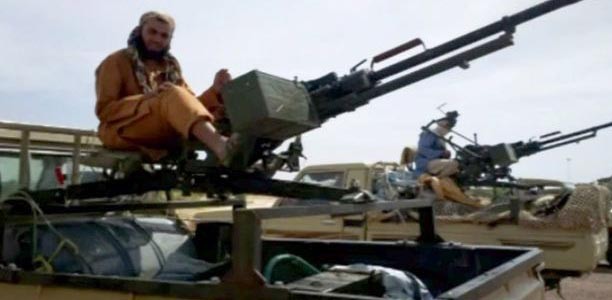NEWS, NIGERIA
On top of the unrelenting insurgency at home and a wobbling economy, Nigeria last week deployed a contingent of 1200 soldiers to war-torn Mali where Al-Qaeda-backed Islamic rebels are having a free reign in the northern part of that country. The military involvement of Nigerian troops, including the Air force came after the Senate granted President Goodluck Jonathan’s request for such sub-regional security expedition.
This has come 17 years after the end of Liberian civil war(1990-1996) in which Nigeria played a dominant role under the security mechanism known as the ECOMOG.
Nigeria’s deployment of troops in Mali may be part of her ambition to play its usual ‘Big Brother’,and dominant role in West Africa’s politics, however, President Jonathan articulated compelling reasons for such risky military expedition in his letter addressed to the Senate President,David Mark, a former soldier.In the letter seeking the Senate consent, as required by section 4(5)of the constitution, President Jonathan the crisis in Mali has the potential risk of spelling over to Nigeria and other West African countries with grave security and political consequences, if not contained.
The President’s letter dripping with a sense of urgency, read:”As a responsible member of the international community, and given our our recent experiences with insurgency and terrorist activities,especially in the northern parts of the country, I felt compelled to urgently approve the deployment of Nigerian troops”. Clearly, the lesson of Boko Haram in the North became a monster that it is today apparently because government and security agencies in Nigeria failed to take early warning signs seriously. And now, Nigeria is living with warnings not heeded.
Besides,the President reminded the Senate of the recent concern voiced by the United Nations Security Council on the deteriorating human and security situation in the north of Mali which is reported to have become more delicate by the presence and entrenchment of disparate and desperate terrorist groups,among them, the fundamentalist Al-Qaida operating in the Islamic Maagreb whose insurgency activities in the north of Mali pose a present danger beyond that Sahelian region. Beyond that, the President’s letter drew the attention of the Senate to key resolutions of the Security regarding the crisis in Mali,in particular,resolution 2071 issued last month.
The resolution was in response to the request of Malian President, Dicconda Traore, calling for immediate military assistance. The same request was directed to the west African subregional organisation, ECOWAS. The ECOWAS offensive is, among other things, to contain further infiltration of terrorists into other countries of West Africa. Undoubtedly, this is a genuine concern.And Nigeria cannot afford not to respond, or else it loses the decade-long ambition to continue to play a dominant role in West Africa’s geo-politics.The situation in Mali is beyond war. Its iron-cast politics and influence peddling and the interplay of events at national, regional and international levels.
Nigerian contigent is about 31.5 percent of the 3,300 strong force from the ECOWAS 15-member states under the platform of Afrca International Support Mission (AFISMA) and the European Union Training Mission(EUTM). Already, France, Mali’s colonial masters swiftly responded to the Malian government request and its forces have destroyed some of the rebels’ strongholds in the north using its warplanes. The addition of Nigeria Air force in the mix is expected to complement the efforts of the French government. In spite of the ‘big brother’role of Nigeria in many west African country, a lot of concerns have been raised,among them the risk in both human lives and financial terms.
In six-year Liberian war, Nigerian lost hundreds of soldiers and civilians, among them journalists, notably. Chris Imodibie of the Guardian and Tayo Awotosin of Champion newspapers. But the military authorities say they are acutely aware of the risks involved in Mali. According to the Chief of Army Staff(COAS), Lt-Gen. Azubuike Ihejirika by participating in Mali, Nigeria would be enhancing its own security at home. He said the efforts of Nigeria should be seen as “peace enforcement with the use of force”. The position of the COAS can be likened to th position held by America’s George Washington, when he said,” there is nothing likely to produce peace as to be well prepared to meet an enemy”.
Surely, the rebels in Mali are potential enemies. However, whatever exploits or gains Nigeria might make by its military involvement in Mali, it will count as nothing if government takes its eyes of the ball of the challenges at home, including insecurity as serious, if not more desperate than that situation in Mali.

No comments:
Post a Comment